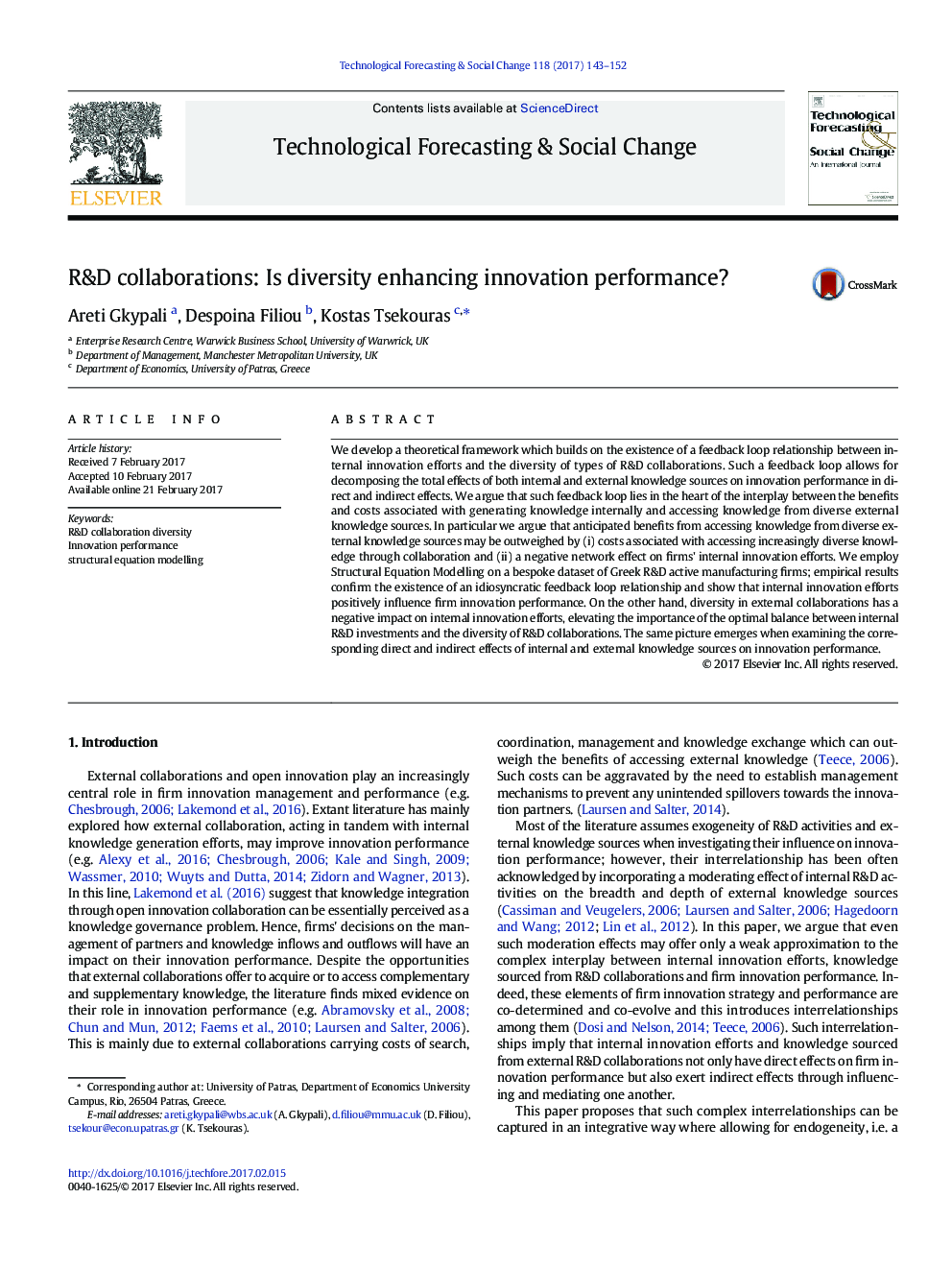| Article ID | Journal | Published Year | Pages | File Type |
|---|---|---|---|---|
| 5037039 | Technological Forecasting and Social Change | 2017 | 10 Pages |
We develop a theoretical framework which builds on the existence of a feedback loop relationship between internal innovation efforts and the diversity of types of R&D collaborations. Such a feedback loop allows for decomposing the total effects of both internal and external knowledge sources on innovation performance in direct and indirect effects. We argue that such feedback loop lies in the heart of the interplay between the benefits and costs associated with generating knowledge internally and accessing knowledge from diverse external knowledge sources. In particular we argue that anticipated benefits from accessing knowledge from diverse external knowledge sources may be outweighed by (i) costs associated with accessing increasingly diverse knowledge through collaboration and (ii) a negative network effect on firms' internal innovation efforts. We employ Structural Equation Modelling on a bespoke dataset of Greek R&D active manufacturing firms; empirical results confirm the existence of an idiosyncratic feedback loop relationship and show that internal innovation efforts positively influence firm innovation performance. On the other hand, diversity in external collaborations has a negative impact on internal innovation efforts, elevating the importance of the optimal balance between internal R&D investments and the diversity of R&D collaborations. The same picture emerges when examining the corresponding direct and indirect effects of internal and external knowledge sources on innovation performance.
